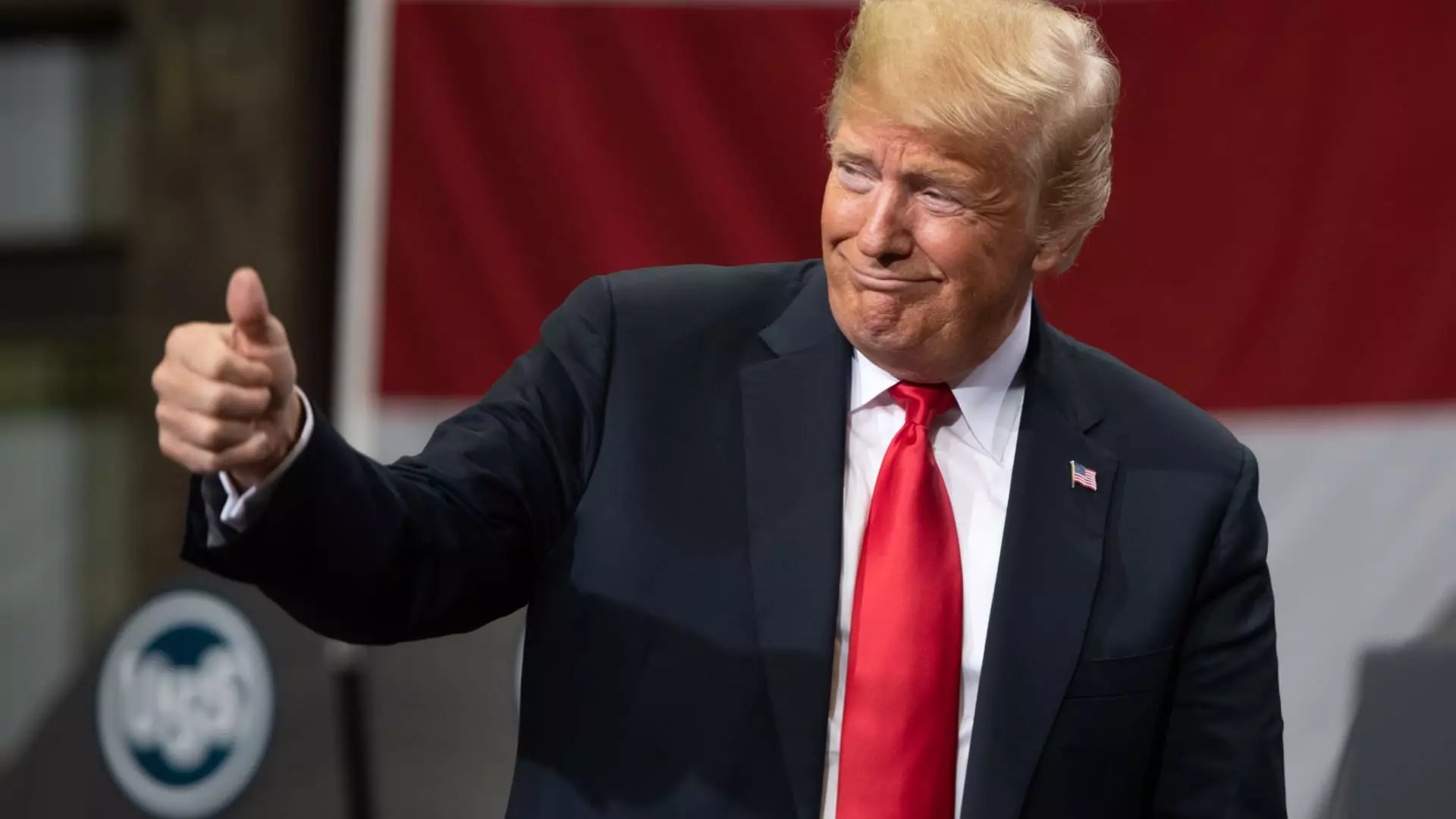In the realm of financial investments, few events rile up the market quite like the unfiltered words of a sitting U.S. president. When Donald Trump suggested via his Truth Social platform that it was a “great time to buy” stocks, he ignited a sensational surge in the stock market. However, this episode begs a deeper examination: Are we witnessing just a fortunate happenstance or a calculated move with underlying motives? The sheer weight of his words resonates throughout the marketplace, echoing how political influence can shape economic landscapes almost instantaneously—often unpredictably and unethically.
Trump’s ostensible endorsement seemed innocent—an encouragement for the everyday investor—but it also served as a tactical maneuver that raised eyebrows regarding the ethical implications of such influence. On the surface, advice wrapped in brash confidence belies the potentially detrimental side effects, primarily as he enjoyed substantial returns as a significant stakeholder in his empire, Trump Media & Technology. This clash between promoting personal interests and a public call to action reflects an unsettling aspect of political power and its ethical ramifications.
Immediate Returns and Long-Term Consequences
On that fateful Wednesday morning, as stocks began to soar following Trump’s post, some opportunistic investors found themselves reaping unexpected rewards. For example, purchasing shares in the SPDR S&P 500 ETF immediately after Trump’s bullish proclamation would have yielded a marginally impressive return by the day’s end, with the index gaining an astonishing 10.5%. But one must question: Is capitalizing on such brief market movements a sustainable strategy?
Investors, particularly novices, may have been tempted by this uptick, but the volatility surrounding such drastic price shifts should serve as a warning. This moment exemplified the thrill of day trading but simultaneously raised significant flags about market stability in an environment where tweets can dictate financial fortunes. The initial elation surrounding the stock surge gives way to a more complex reality: Long-term investments demand caution, regardless of the allure of a “quick score.”
Public Sentiment and Market Manipulation
The sentiments expressed by everyday investors during this episode reflect a polarized relationship with the stock market and its interplay with politics. While some users on platforms like WallStreetBets hailed Trump’s call to action as an opportunity for a lucrative investment, others were quick to equate it to market manipulation. One commentator’s musings on insider trading in light of Trump’s influence encapsulate a deep frustration felt by many who perceive the stock market as rigged in favor of a select few.
In this context, the blurred lines between political leadership and financial opportunism become painfully apparent. It becomes particularly troubling when one considers that those who ride the waves stirred by lofty proclamations may unwittingly become participants in a game manipulated by those with power. The net result? A market increasingly sensitive to whims, fostering a culture of distrust among the average investor. The very essence of capitalism should be based on sound principles; yet, how can we expect any semblance of fairness in an environment rife with personal and political agendas?
The Broader Implications of Political Economic Interference
The reservoir of power that allows a president to sway markets with a simple social media post brings into question the integrity of financial ecosystems. The implications of such actions extend beyond the day-to-day fluctuations, casting a shadow over the longevity of stock market health. Such unpredictable shifts raise concerns about market fundamentals and the rule of law guiding financial practices.
Additionally, investors must grapple with the reality that decisions driven by political whims can result in real-world consequences. Businesses may suffer, and the economy may tremble due to a president’s capricious declarations that prioritize personal gain over public interest. The potential for abuse within this dynamic plays a pivotal role in shaping policy, ultimately benefitting a small elite at the expense of the broader public.
As Trump garnered gains from this whirlwind of market activity, we must engage in dialogues about how the intersections of politics and economics can lead to ethical violations. Policymakers must take responsibility for ensuring that the rules governing financial marketplaces remain strictly enforced and devoid of bias, promoting fairness rather than vulnerability to political exploitation. In the convoluted reality of finance, perhaps the only certainty is that the unbalanced power wielded by influential figures will continue to shape the narrative— for better or worse.


Leave a Reply